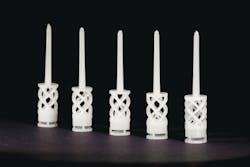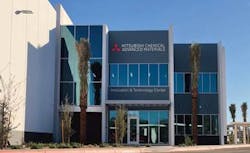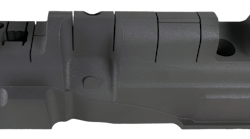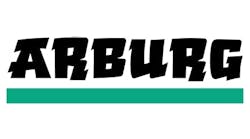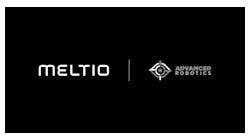Mitsubishi Chemical Advanced Materials is preparing to launch Freeform Injection Molding (FIM) technology in August at its new Innovation & Technology Center in Mesa, Ariz.
Developed with AddiFab of Denmark, Freeform Injection Molding (FIM) employs 3-D printed, one-time-use mold inserts to create customized parts in traditional injection molding presses. It allows molders to create structures such as double helixes that would have been impossible to make with conventional approaches.
“Our first AddiFab Freeform Injection Molding system arrived in April and our second system arrives end of July,” said Randy White, chief innovation officer of Mitsubishi Chemical Advanced Materials. “We expect to be fully operational in Mesa by Aug. 15.”
“We are already having instant success coupling the AddiFab technology with our KyronMAX composite compounds — offering lightweight metal replacement solutions to a handful of customers as we learn the new technology. We expect to be completing at least one new project per week starting in September,” White said.
Mitsubishi Chemical Advanced Materials’ new Innovation & Technology Center is vertically integrated, bringing carbon processing, compounding, polymer extrusion, injection molding, machining, final assembly, testing and packaging under one roof.
FIM uses additively manufactured sacrificial inserts that are placed inside a conventional injection mold. The inserts are removed after the component is molded. Because they are 3-D printed, the inserts are easy to manufacture and replace, giving mold makers and manufacturers the freedom to create many iterations of the same design. They replace metal cores and cavities for demanding low-volume, short-run applications.
AddiFab CEO Lasse Staal said recent upgrades to the FIM system include a semi-automated parts-cleaning station, a demolding station and upgrades to the resin portfolio to deliver better precision, higher strength and faster dissolving.
Read more about the technology at https://plasticsmachinerymagazine.com/21108853.
Contact:
AddiFab, Palo Alto, Calif., 650-526-8121, www.addifab.com, www.freeforminjectionmolding.com
Mitsubishi Chemical Advanced Materials Inc., Mesa, Ariz., 480-926-8100, www.mcam.com
